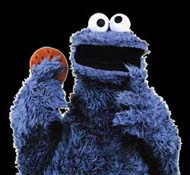SW, Chapter 4: I have met the enemy, and he is us.
You thought I'd given up, didn't you? But you thought wrong, my friends. I am in the last 100 pages here. That's right, Marcel my boy, your dead French ass is going down.
But before I light a cigar and wave my fists above my head all "I am the chaaaaaampion!," I have a kind of frightening revelation to make.
There's a point near the end of "Swann in Love," when Swann attends a concert at a friend's house. And there's quite a lot of social satire and even an infinitesimal amount of plot development, but by far the most space and attention is given to descriptions of the music itself--page after page of discussion of the music, of the nature of enjoying music, of the unfashionable but still-compelling "swan-necked" motifs of Chopin, of the effect the music has not just on Swann, but on others in the audience. And it hit me: Proust is a music geek. Proust, if he were alive today, would have the entire back catalog of the Pixies, including bootlegs, and all of it on vinyl, because of course vinyl has such a warmer, richer sound and blahblahblah. And he would have really strong opinions about the merits of Frank Black's solo work as opposed to the Breeders, and he'd be able to namecheck the first time he saw them in Boston when they were still just a college band, and...
Now, one of the reasons I decided to read Proust in the first place--other than the sheer pig-headedness that informs almost all my life choices--was because I knew he'd been a major influence on so many writers whose work I really admire. Just as listening to Howling Wolf gives you a better understanding of how the Rolling Stones got their start, reading Proust puts, say, Dave Eggers into a much fuller context. So when I hit this realization, the next thought was: Of course. Nick Hornby. I mean, those Songbook essays? Totally Proustian, with their obsessive connection of music to memory and their bar-by-bar detailed descriptions.
Which is when the next thought hit me: Oh jeezus. I've written a Songbook essay. (Two, actually, but McSweeney's stopped running them by the time I wrote the second one, so it's just been sitting around gathering electronic dust on my hard drive since then.)
That's right: I can mock him, I can critique him, I can threaten to take a red pen to his entire life's work, but I cannot escape the fact that I am just two degrees away from being influenced by Proust.
Damn you, Marcel!
But before I light a cigar and wave my fists above my head all "I am the chaaaaaampion!," I have a kind of frightening revelation to make.
There's a point near the end of "Swann in Love," when Swann attends a concert at a friend's house. And there's quite a lot of social satire and even an infinitesimal amount of plot development, but by far the most space and attention is given to descriptions of the music itself--page after page of discussion of the music, of the nature of enjoying music, of the unfashionable but still-compelling "swan-necked" motifs of Chopin, of the effect the music has not just on Swann, but on others in the audience. And it hit me: Proust is a music geek. Proust, if he were alive today, would have the entire back catalog of the Pixies, including bootlegs, and all of it on vinyl, because of course vinyl has such a warmer, richer sound and blahblahblah. And he would have really strong opinions about the merits of Frank Black's solo work as opposed to the Breeders, and he'd be able to namecheck the first time he saw them in Boston when they were still just a college band, and...
Now, one of the reasons I decided to read Proust in the first place--other than the sheer pig-headedness that informs almost all my life choices--was because I knew he'd been a major influence on so many writers whose work I really admire. Just as listening to Howling Wolf gives you a better understanding of how the Rolling Stones got their start, reading Proust puts, say, Dave Eggers into a much fuller context. So when I hit this realization, the next thought was: Of course. Nick Hornby. I mean, those Songbook essays? Totally Proustian, with their obsessive connection of music to memory and their bar-by-bar detailed descriptions.
Which is when the next thought hit me: Oh jeezus. I've written a Songbook essay. (Two, actually, but McSweeney's stopped running them by the time I wrote the second one, so it's just been sitting around gathering electronic dust on my hard drive since then.)
That's right: I can mock him, I can critique him, I can threaten to take a red pen to his entire life's work, but I cannot escape the fact that I am just two degrees away from being influenced by Proust.
Damn you, Marcel!


2 Comments:
Ranger Hotsauce said:
Ah crap, I thought it might come to this: now I have to find my copy of "Lost Times" and get started. *grumbles*
Shutupproust said:
Or, y'know, you could just pull out "High Fidelity." An infinitely easier read.
RangerHotsauce said:
Oh, it's not the music geekdom, it's the proof that not only can it be finished, but something about it can be appreciated.
Shutupproust said:
Oh, it can definitely be finished. Once you get past "Combray," it gets a lot easier. Now, whether it's worth finishing it--that's a whole 'nother kettle of fish...
WhiskeyPoptart said:
My hats off to you for having conquered teh Proust. I can barely get through the back of a cereal box these days before my attention starts to drift.
Post a Comment
<< Home